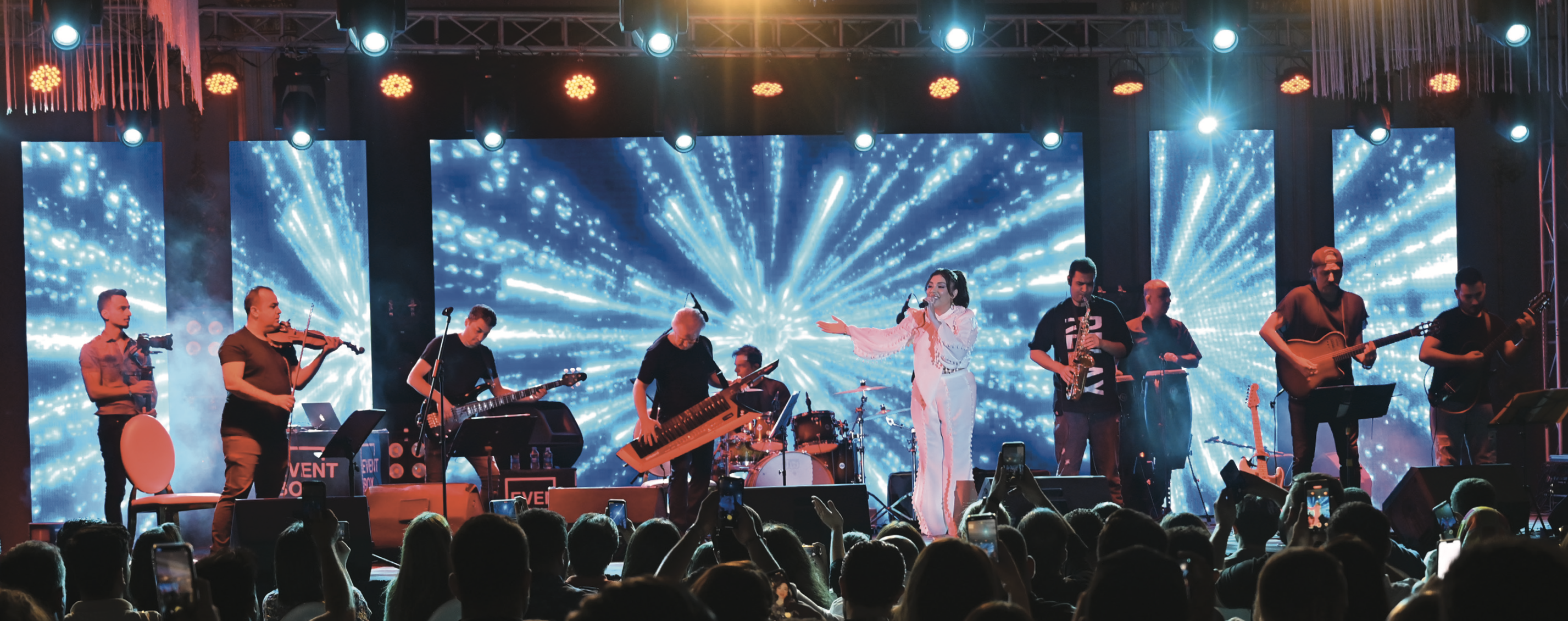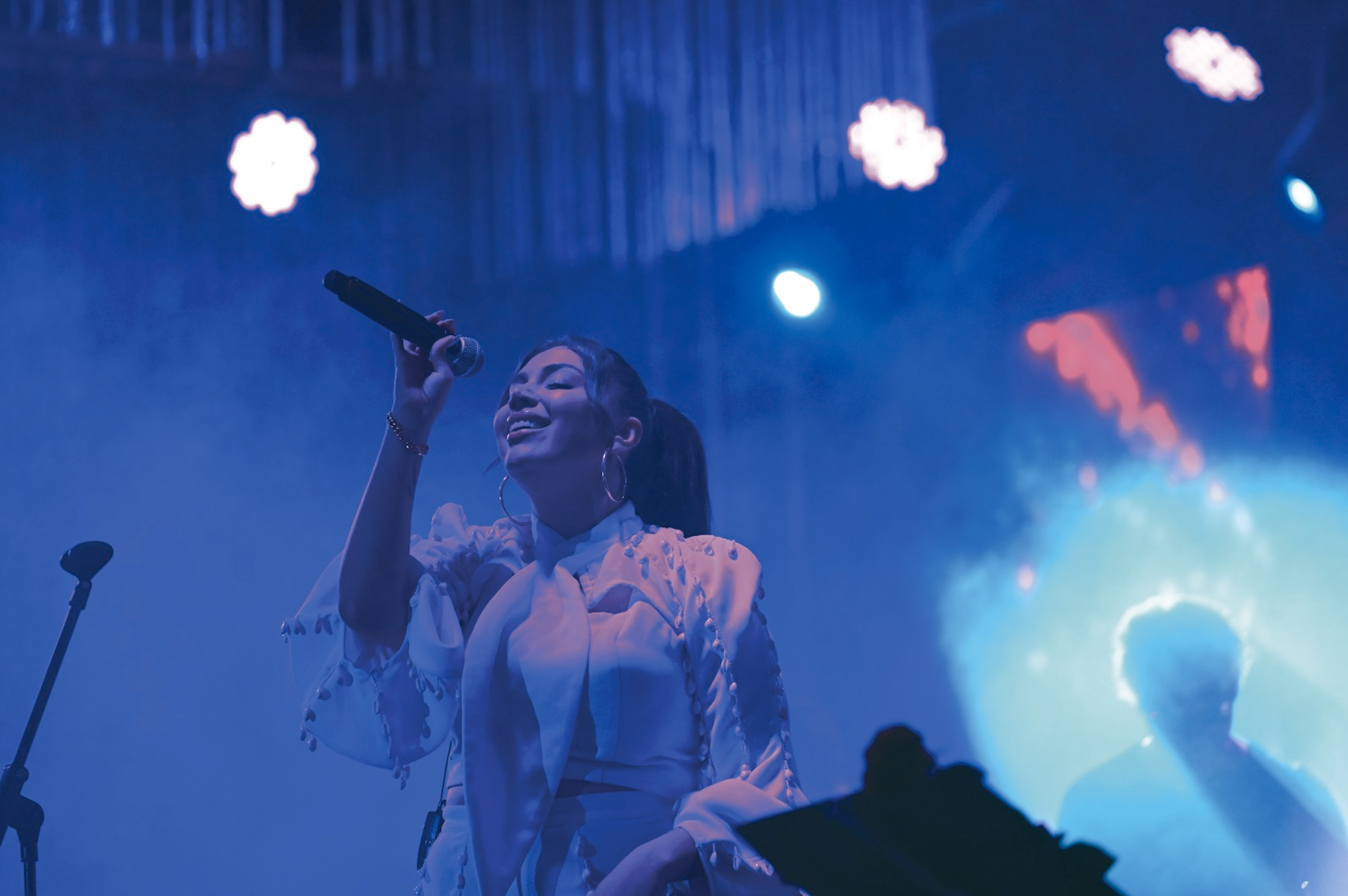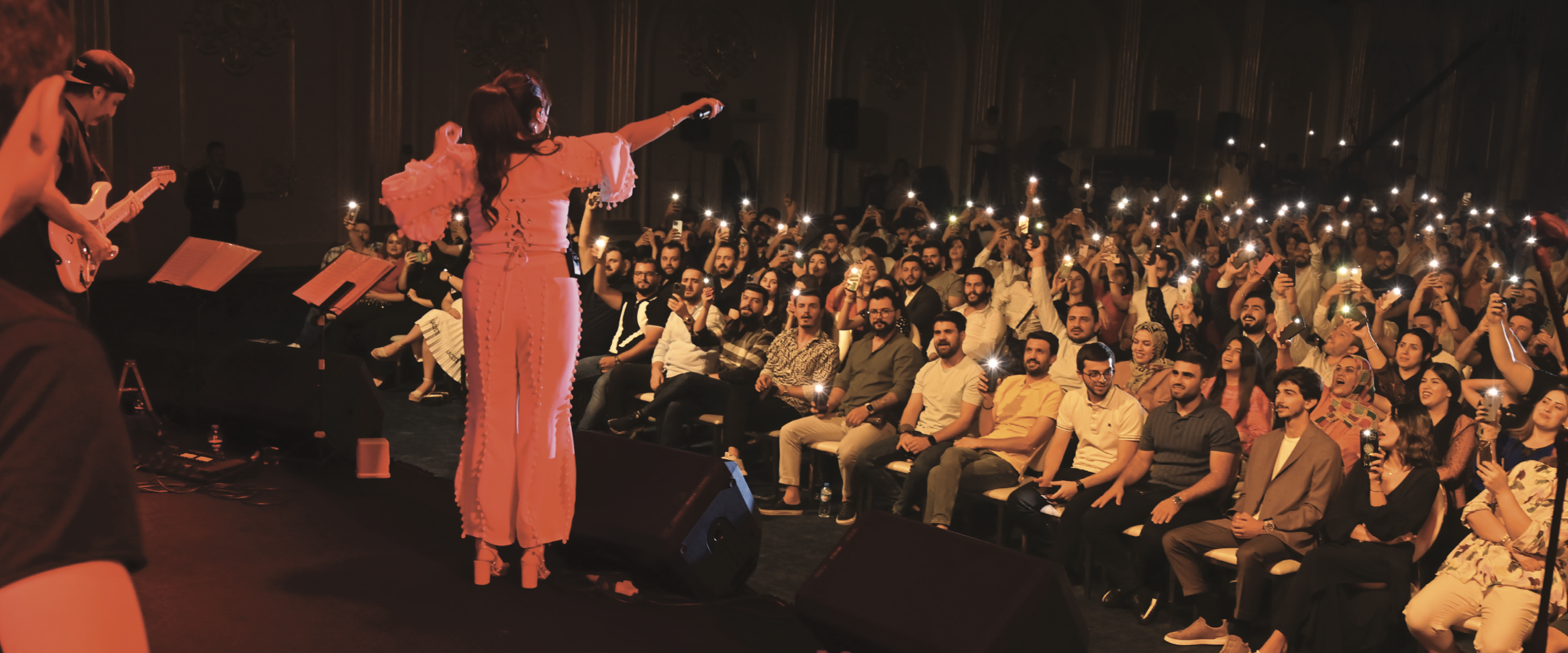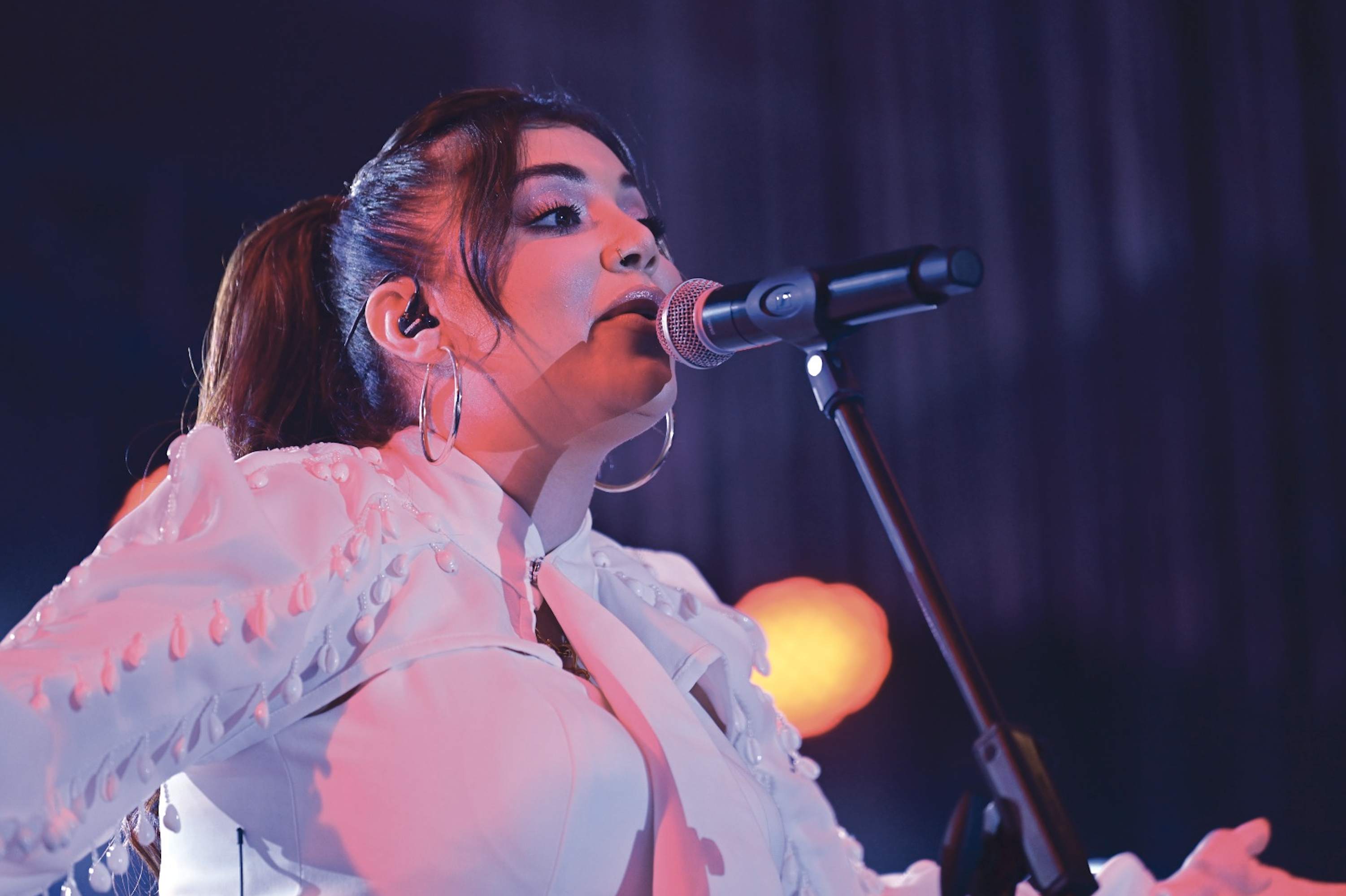Only a few years ago, the velvety voice of a woman suddenly filled every corner of Kurdistan. The artist soon became popularly known by her first name only – and yet no one had ever seen her face. It was at this point that a new star, songwriter, and musician emerged: Sana Barzanji. In an interview with Kurdistan Chronicle, Barzanji spoke about her personal and musical journey and the profound messages embedded in her art. With her identity initially shrouded, Barzanji’s voice became the focal point for breaking barriers and challenging societal norms in Iran.

The voice before the face
For several years, Barzanji covered Kurdish folk melodies and gained popularity not just among the youth, but also with the older generation, for whom folk music triggered sweet nostalgia.
Barzanji’s breakthrough came in 2020 with the release of her album Raz, which swiftly soared to the top of musical charts, solidifying her position as a rising star. At that time, she had never shown her face to her tens of thousands of fans. She aimed to forge a connection based on her music rather than relying on flashy appearances. This unconventional approach paid off, as her audience learned to recognize her voice even before seeing her face.
When asked about this choice, she reflected, “I believe that was a great decision, one that perfectly served my art. In the modern world, most singers and musicians try to compensate for the lack of art in their work with exaggerated visuals. I did the opposite.”
However, this choice also led to impersonation on social media, with fake pages claiming to be Barzanji. At this stage, sensing a void, she decided it was time to step into the limelight, allowing her audience to see the person behind the mesmerizing voice.

The taboo of a woman’s voice
Growing up in the strict confines of Iran as a female artist, Sana faced a unique set of challenges.
“When you live in Iran, and when you are a female artist, you are doomed to silence. Women cannot sing in Iran; they can face severe punishments. I started singing there, in that very strict environment. That’s why my ultimate message is freedom, resilience, and peace,” she told Kurdistan Chronicle.
Her journey into the world of art and music began as a little girl with a passion for singing. However, her professional career blossomed many years later. Sana attributes much of her success to her family, particularly her father, who not only believed in her, but also introduced her to the rich tapestry of classic Kurdish music, shaping her dedication to preserving and promoting her cultural heritage.

Kurdish music today
Reflecting on the state of music in Kurdistan, Barzanji expressed concern about the influence of Western music as well as that from neighboring countries. She emphasized the importance of preserving Kurdish language, melodies, traditions, and folklore in the face of this cultural dilution, considering it a crucial part of nation-building.
When asked about the impact of modern technologies on protecting artists’ intellectual property, Sana acknowledged the positive role that technology plays.
“Yes, fortunately, that has helped us a lot. Not only through local laws and regulations, but also with the help of modern technologies, we can protect the intellectual property that belongs to us,” she elaborated.

The responsibilities of the stage
Witnessing the audience sing along to her songs elicits a complex emotion for Barzanji. She described it as a strange feeling – a mix of pride and acknowledgment of the responsibility that comes with being a beloved artist.
“An artist should remember this all the time and work hard to always meet the growing expectations of the audience,” she noted.
Looking ahead, Barzanji shared her aspirations: “I just want to be myself. I don’t want to be an imitation. I want to make music that comes from the heart.”
One of her loftiest goals is to win a Grammy with a Kurdish song, a dream fueled by the desire to make her people proud and fulfill her artistic responsibility.
In the captivating journey of Sana Barzanji, the veil over her identity may have been lifted, but her voice remains a powerful force, carrying messages of freedom, resilience, and peace. As she navigates the complex landscape of Kurdish music, Barzanji continues to earn her rightfully achieved popularity, hoping to represent Kurdistan and its rich culture on international stages.
Sardar Sattar is a translator and journalist based in the Kurdistan Region. He has an MA in English Studies from the University of Lodz, Poland. He has translated several books and political literature into Kurdish and English. He writes regularly for local and international newspapers and journals.

